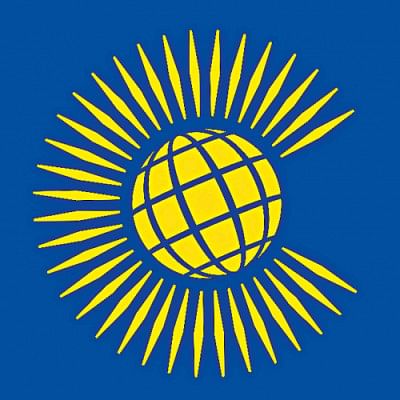Is the Commonwealth declining?

Bangladesh is one of the 54 members of the Commonwealth—but how many Bangladeshis are aware of this and that March 8 was Commonwealth Day? And what significance does this membership hold for us? While some may know only of the Commonwealth Games, most of us are unaware of the history behind the formation of this association and its relationship with Bangladesh.
In 1949, a Commonwealth of Nations of former British colonies and dominions was formed to promote collaboration and good governance among its members. A Secretariat was established in Marlborough House in UK with a Secretary General. It was decided that all countries would have equal status, but may be expelled from membership for violation of human rights and rule of law. This was exemplified in 1971, when Pakistan was expelled for violation of the human rights of millions of Bangladeshis (then East Pakistanis). Over five decades later, a Commonwealth Heads of Government Meeting (CHOGM) is still held every two years and is headed by Queen Elizabeth II (who is head of state in 16 countries within the Commonwealth realm).
But does the Commonwealth have a future in today's rapidly changing world? If so, how does it assist Bangladesh in the present era?
In July 2019, the Commonwealth Secretariat's Countering Violent Extremism (CVE) Unit launched a project called Amader Porichoi (Our Identity) in Bangladesh. It included teachers, government officials and students from various universities. They shared views on cross-generational experiences of the Bangladeshi identity, both pre- and post-1971, including awareness of misinformation and fake news. A film named Shongram, produced by British-Bangladeshi Munsur Ali, was also screened. The government welcomed the innovative project in the lead-up to the 50th anniversary of Bangladesh's independence.
Furthermore, from 2011 to 2013, the then Foreign Minister of Bangladesh, Dr Dipu Moni, chaired the Commonwealth Ministerial Action Group (CMAG). Subsequently, in 2020, the current Foreign Minister, Abdul Momen, was appointed Chair of the CMAG to resolve the Maritime Territorial Dispute between British Guyana and Venezuela.
It is important to note that Bangladesh is a member of several of the association's initiatives, including the Commonwealth Clean Ocean Alliance, Ocean and Climate Change, Mangrove Ecosystems, Livelihoods for Sustainable Aquaculture, and Sustainable Blue Economy Action Group. Bangladesh is also a member of the Digital and Regulatory Connectivity clusters of the Commonwealth Connectivity Agenda.
The Commonwealth Foundation is known for working with grassroots NGOs. It prompted the UK anti-poverty charity War on Want (along with its Department for International Development) to assist after the tragic Rana Plaza collapse in 2013. They developed a campaign entitled "Never Again: making fashion factories safe", which helped in the signature of a legally-binding Bangladesh Accord on Fire and Building Safety by over 150 of the biggest RMG companies, in order to prevent such disasters in the future.
The Commonwealth also shares valuable connections with organisations outside governments. It has a forum of a whopping 70 accredited organisations known as the Commonwealth Family. The Association of Commonwealth Universities, for instance, is a critical link for academic connectivity through Commonwealth Scholarships Programmes, enabling Bangladeshi students to study in Britain. The Commonwealth Foundation strengthens NGOs and civil society in terms of democracy, gender equality, child rights, and the promotion of art and culture. In Bangladesh, it has created a Consortium for Street Children (CSC) and is working with Dhaka Ahsania Mission, Grambangla Unnayan Committee and other local development organisations to end the discrimination faced by an estimated 1.5 million street children in Bangladesh.There is also the Commonwealth Writers Association, which awards good writing from the Commonwealth countries. Two Bangladeshi-born writers have won the Commonwealth Writers' Prize "Best First Book Award" so far—Adib Khan in 1995 and Tahmina Anam in 2008.
Besides these, the Commonwealth Business School uses the network of the Commonwealth for promoting trade and investment. It links businesses and governments to increase trade and facilitate ICT and private-public partnerships. It includes some of the fastest growing economies like Singapore, Malaysia, India, South Africa and, of course, Bangladesh. It is noteworthy that trade worth USD three trillion takes place annually within the Commonwealth.
Similarly, the Commonwealth Science Conferencebrings together outstanding researchers and leading scientists to address global challenges, strengthen capacities of member countries and influence policy agendas. A great example of the Conference's success is Australian scientist Veena Sahajwalla, who has invented a new process of reducing CO2 emissions in steel-making from 50 percent to 100 percent by eliminating the use of purified coal and substituting it for coffee grounds. She presented her ideas—titled "Aligning recycling and manufacturing"—virtually on February 23, 2021 during the Commonwealth Science Conference 2021.
Out of all this, the best-known aspect of this association is certainly the Commonwealth Games, which is the second largest multi-sport event in the world. Bangladesh has competed in eight Games, winning eight awards for shooting.
Most Commonwealth states share similar legal systems, administrative structures, the Westminster parliamentary style of democracy and the usage and/or practice of the English language. Games such as football, cricket, badminton, golf, squash and tennis, plus military and naval ranks, are common to most member states.
So given the association's healthy rapport with our nation, why is the Commonwealth so little known in Bangladesh? Information about the Commonwealth is not included in school textbooks as chapters on the United Nations (UN) are.
The Commonwealth Society of Bangladesh is also quite inactive. It usually holds one seminar on the Annual Commonwealth Theme, even though it would now be very convenient to hold seminars on important UN Days through the use of social media. I myself was involved with this Society for two years and had invited all High Commissioners and relevant persons to attend events using social media to promote the Society. It has been chaired by several ex-ministers, yet no one made any serious effort to secure a venue.
In Malaysia, for instance, the Commonwealth Society has a large venue for itself, complete with a tennis court, library and other amenities. The same goes for the Royal Commonwealth Society of Sri Lanka and other countries elsewhere.
Let us hope that someday, the Commonwealth Society of Bangladesh will be chaired by a dynamic person using innovative ways to make the Commonwealth properly known to the general public.
Selina Mohsin is a former Ambassador and a contributor to The Daily Star.

 For all latest news, follow The Daily Star's Google News channel.
For all latest news, follow The Daily Star's Google News channel. 



Comments